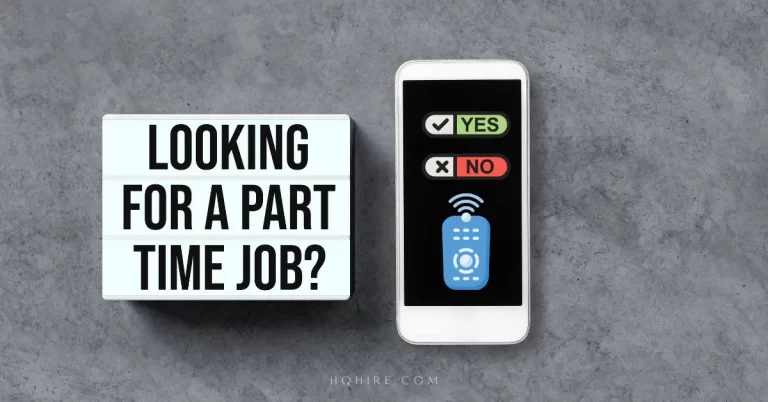|
Listen To Article
Getting your Trinity Audio player ready...
|
Special education teachers play a crucial role in the lives of students with special needs, providing them with tailored support and empowering them to reach their full potential.
This rewarding career requires a unique set of skills, characteristics, and knowledge. In this article, we will explore the skills required to become a successful special education teacher.
From interpersonal skills to specialized knowledge and problem-solving abilities, we will delve into the essential elements that contribute to excelling in this meaningful profession.
Duties and Responsibilities of a Special Education Teacher
- Special education teachers are responsible for assessing students’ needs and developing individualized education plans (IEPs).
- They collaborate with parents, colleagues, and specialists to create inclusive learning environments.
- Special education teachers implement effective teaching strategies and accommodations to support students’ academic and social development.
Characteristics of a Special Education Teacher
- Compassion: Special education teachers possess deep empathy and understanding for students with diverse needs, creating a nurturing and supportive environment.
- Patience: They demonstrate patience in addressing individual learning challenges and progress at a pace suitable for each student.
- Adaptability: Special education teachers are flexible and adjust their teaching methods to meet the unique requirements of each student.
Personality Traits Needed for a Special Education Teacher
- Empathy: Understanding students’ perspectives and emotions enables special education teachers to provide effective support and encouragement.
- Resilience: This trait allows teachers to overcome challenges, advocate for their students, and maintain a positive learning environment.
- Effective Communication: Clear and compassionate communication fosters strong relationships with students, parents, and colleagues.
Interpersonal Skills of a Special Education Teacher
- Building Rapport: Establishing trust and a positive connection with students encourages their engagement and participation in the learning process.
- Collaboration: Working closely with parents, other educators, and support staff promotes a holistic and comprehensive approach to education.
- Emotional Support: Special education teachers offer emotional guidance and create a safe space for students to express themselves.
Professional Skills of a Special Education Teacher
- Individualized Instruction: Tailoring teaching methods and materials to suit each student’s strengths and needs enhances their learning experience.
- Assessment and Progress Monitoring: Conducting thorough assessments helps track students’ progress, identify areas for improvement, and adjust instruction accordingly.
- Behavior Management: Employing effective behavior management techniques fosters a positive and structured classroom environment.
Specialized Knowledge and Training of a Special Education Teacher
- Learning Disabilities: Special education teachers acquire knowledge about different learning disabilities and effective strategies to support students with specific challenges.
- Autism Spectrum Disorders (ASD): Understanding ASD and implementing evidence-based practices enables teachers to create inclusive and supportive classrooms.
- Behavioral Interventions: Special education teachers learn techniques to address challenging behaviors and promote positive behavior development.
Problem-Solving and Adaptability Skills of a Special Education Teacher
- Analytical Thinking: Being able to analyze student data and assess learning gaps helps special education teachers design targeted interventions.
- Flexibility: Adapting instructional methods and accommodations based on individual student needs ensures optimal learning outcomes.
- Conflict Resolution: Resolving conflicts and addressing challenges in collaboration with parents, students, and colleagues leads to effective problem-solving.
Collaboration and Teamwork Requirement of a Special Education Teacher
- Multidisciplinary Collaboration: Working with speech therapists, occupational therapists, and other specialists ensures comprehensive support for students.
- Teamwork: Collaborating with other educators and support staff fosters a cohesive and inclusive learning environment.
What Does It Mean To Be a Special Education Teacher
Becoming a successful special education teacher requires a combination of interpersonal skills, professional expertise, specialized knowledge, and problem-solving abilities.
By cultivating these skills and traits, special education teachers can make a lasting impact on the lives of students with special needs, supporting their growth, development, and academic success.
Job Description Example
Special Education Teacher Job Description
We are seeking a compassionate and dedicated Special Education Teacher to join our team. As a Special Education Teacher, you will play a crucial role in providing individualized instruction and support to students with diverse learning needs.
Your expertise in special education strategies, patience, and commitment to fostering inclusive learning environments will make a positive impact on the academic and social development of our students.
If you have a passion for making a difference in the lives of exceptional learners, excellent communication skills, and a strong understanding of special education practices, we invite you to apply and be part of our team of educators.
Responsibilities
- Develop and implement Individualized Education Programs (IEPs) for students with special needs, setting measurable goals and objectives.
- Adapt instructional materials, strategies, and assessments to meet the unique learning needs of each student.
- Provide direct instruction in academic subjects, life skills, and social-emotional development, using specialized teaching methods and assistive technologies as needed.
- Create a supportive and inclusive classroom environment, promoting a sense of belonging and acceptance for all students.
- Collaborate with general education teachers, administrators, and other specialists to coordinate instruction and support services.
- Monitor student progress, assess learning outcomes, and maintain accurate records of students’ academic and behavioral achievements.
- Implement behavior management strategies and interventions to address challenging behaviors and promote positive social interactions.
- Communicate regularly with parents or guardians, sharing progress updates, discussing strategies, and addressing any concerns.
- Collaborate with related service providers, such as speech therapists, occupational therapists, and psychologists, to ensure comprehensive support for students.
- Stay updated with current research, best practices, and legal requirements in special education.
Key Requirements
- Bachelor’s degree in Special Education or a related field. Master’s degree is preferred.
- Valid teaching certification in Special Education.
- Proven experience working with students with special needs, demonstrating a strong understanding of various disabilities and accommodations.
- Knowledge of special education laws, regulations, and IEP development.
- Excellent communication and interpersonal skills to effectively collaborate with students, parents, and multidisciplinary teams.
- Patience, empathy, and a genuine commitment to the academic and social growth of students with special needs.
- Strong organizational and time management skills to effectively plan and implement instruction.
- Ability to differentiate instruction and use a variety of teaching strategies and resources.
- Familiarity with assistive technologies and adaptive equipment used in special education settings.
- Clear background check and any other requirements mandated by local education authorities.
We’ve one question…
Did we miss out on any critical skills needed?
Let us know in the comments below!
Education is probably the most important field for nurturing our next generation. While there are many types of educator, special education teachers is special, these selfless teachers educate students who have very special needs, helping them become people who can take care of themselves in the future.
Before you go, take a look at other types of career paths and learn more about this field.
Read Also:
- 21 Common Performance Appraisal Meeting Questions (with Example Answers)
- How to Prepare for an Online Meeting with Your Boss (Effective Meeting Strategy)
- 20 Best Skip Level Meeting Questions To Ask (2-Way Communication with Bosses and Managers)
- How to Prepare for a Performance Appraisal Meeting (Acing Your Review with Confidence)
- How to Prepare for a Skip-Level Meeting as an Employee (with Example Questions)
Join over 11,000+ achievers who are committed to achieving their career goals!






